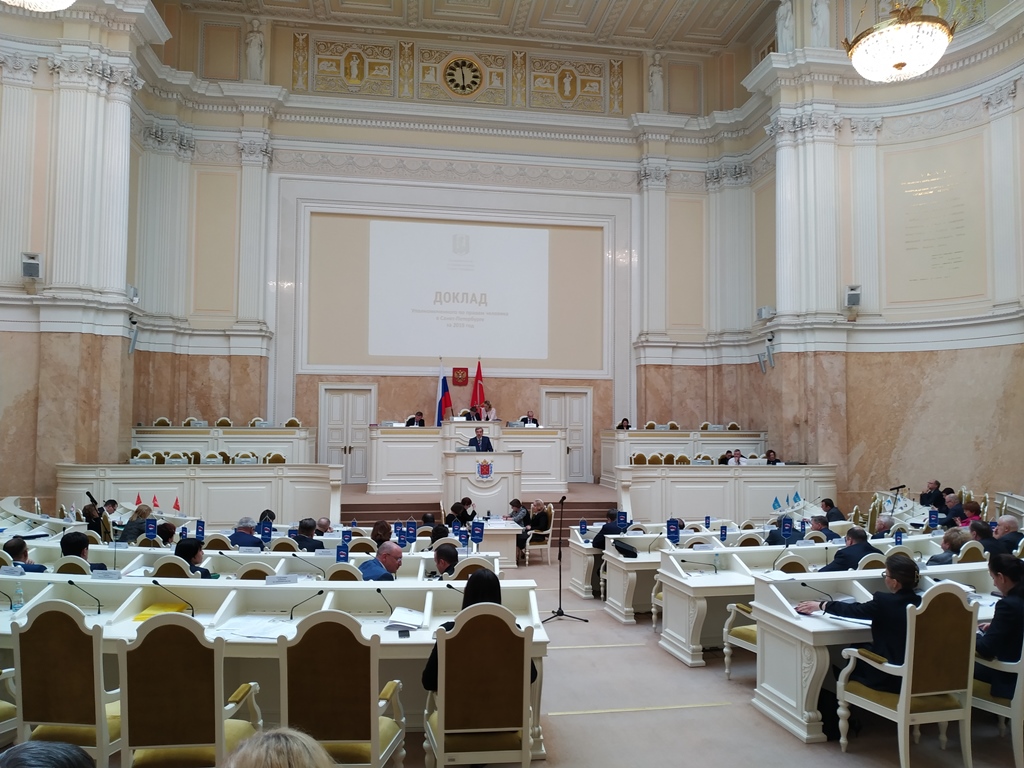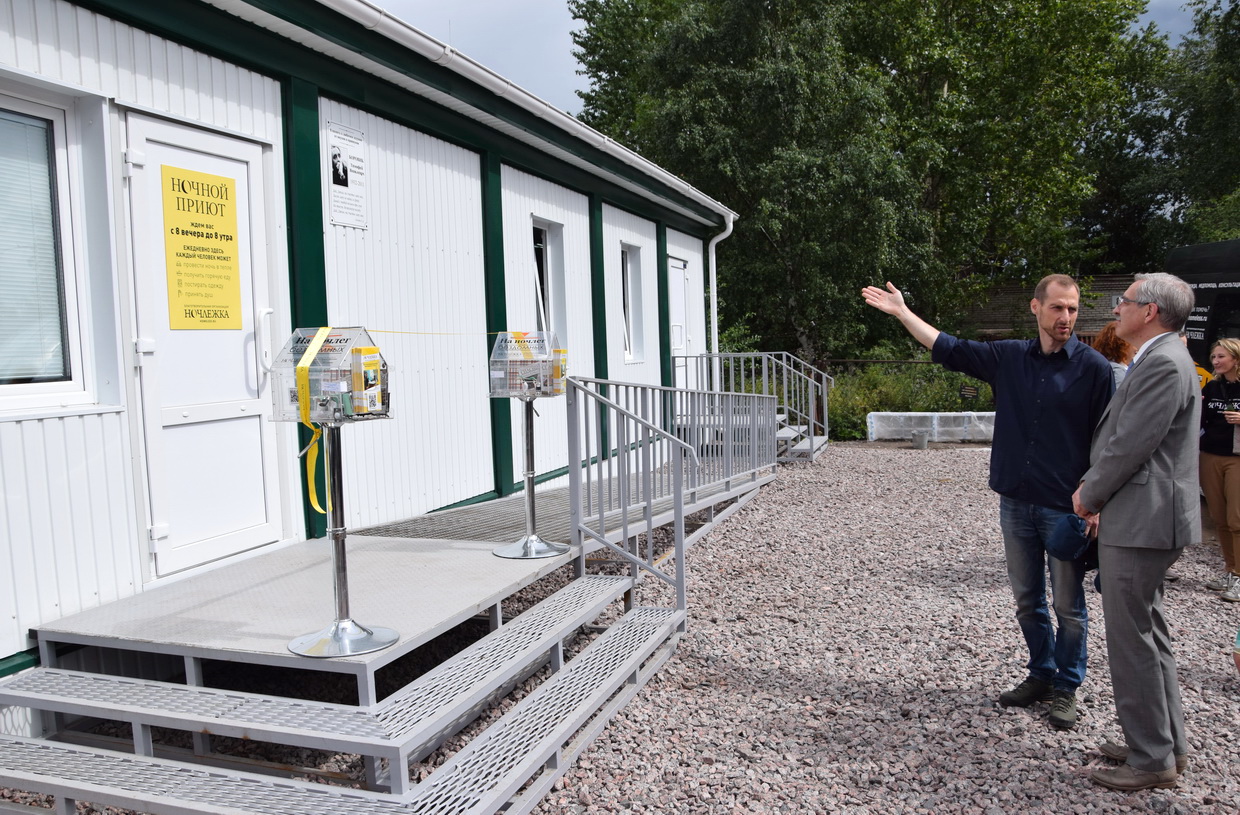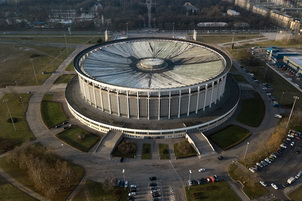The Report of the Human Rights Ombudsman for Saint Petersburg for 2019* (hereinafter – “the Report”) is submitted pursuant to the Law of Saint Petersburg of 17 December 1997 No 227-77 “On the Human Rights Ombudsman for Saint Petersburg” (hereinafter – “the Law on the Ombudsman”).
The Report is a core document on the human rights situation in Saint Petersburg, and on the Ombudsman’s and his Office’s activities related to the protection of human rights and to the human rights education.
The Report is based on the results of inspections carried out following complaints to the Ombudsman, on analytical and statistical data, information from the authorities, non-governmental organisations (hereinafter – “NGOs”), and media.
The Report contains the Ombudsman's recommendations of improvement of the legislation and law enforcement practice aiming to solve existing human rights problems and ensure conditions for the implementation of human and civil rights and liberties guaranteed by the Constitution of the Russian Federation.

"In 2019, many of the human rights problems indicated in previous annual reports remain the same. Unfortunately, the gap between constitutional guarantees of human rights and liberties and the opportunities for enjoyment of the rights widened in certain areas. The growth of violations of the right to participate in managing state affairs and the right to freedom of peaceful assembly – rights, observance of which provides “feedback” to society and the state, – was especially notable. It is no coincidence that the organisers of the Russian competition the “Word of the Year”, which has been conducted for many years already, identified the confrontation between the authorities and society as the most significant and statistically dominant keynote in 2019. And the word “protest” became the word of the year. Last year, the growth of civic activity, the desire of people to influence their own destiny, to resist injustice and untruth, to assert their rights were clearly manifested.
The Ombudsman’s role in the protection of human rights is not only to solve the specific problems of everyone who applies for help but also to promote dialogue between people, between society and government, overcoming distrust and misunderstanding. The artistic decoration of the Report highlights this particular feature of our work on “building bridges”, and the beautiful Saint Petersburg bridges, reminding us of our common history and culture, are chosen for illustrations.
In order to restore violated rights of citizens and to solve the most acute systemic human rights problems (first of all – as established by the Law of Saint Petersburg – in the field of the protection of fundamental civil and political human rights, as defined in Articles from 2 to 21 of the Universal Declaration of Human Rights), I and my staff members interacted with public human rights organisations, bar associations, state controlling and supervisory agencies, territorial subdivisions of federal authorities, legislative and executive authorities of Saint Petersburg, local self-government authorities.
I express my sincere gratitude to all those who contributed to ensuring and protecting human rights and liberties in Saint Petersburg.
Thank you to everyone who helped with the work on the Report".
Alexander Shishlov
Human Rights Ombudsman for Saint Petersburg
Human Rights Ombudsman for Saint Petersburg
Complaints to the Ombudsman
In 2019, the Ombudsman received a total of 7,725 complaints (in 2018 – 6,807). Since 2012, the highest number of complaints received by the Ombudsman were about the right to housing, but in 2019 for the first time, the complaints concerning the work of law enforcement agencies took the leading position.
In 2019, the Ombudsman received a total of 7,725 complaints (in 2018 – 6,807). Since 2012, the highest number of complaints received by the Ombudsman were about the right to housing, but in 2019 for the first time, the complaints concerning the work of law enforcement agencies took the leading position.
Combating torture
Cases of unlawful use of violence by law enforcement officers (including those that have caused broad public attention, but have not been properly assessed) are of particular concern.
Cases of unlawful use of violence by law enforcement officers (including those that have caused broad public attention, but have not been properly assessed) are of particular concern.
In 2020, the trial of the Saint Petersburg defendants in the “Network” (group, which was declared a terrorist organisation by the Moscow District Military Court and banned in Russia) case has continued. The court will assess the guilt of the defendants. But unfortunately, today we have to state that information about violations of the rights of defendants, including the use of torture, has not been thoroughly checked by either the investigation or the prosecutor's office.
At the beginning of August, video footage from pretrial detention center No 1, in which the persons under investigation were tortured by inmates belonging to the so-called “active core”, was published on the Internet. The staff members of the pretrial detention center, responsible for working with these prisoners, were dismissed.
The inspection of the conditions of detention at pretrial detention center No 1. 08.08.2019.
Pictured: Ekaterina Kosarevskaya and Yana Teplitskaya, the members of the IV convocation of the Public Monitoring Commission, and Konstantin Sharygin, the Head of the Analytical Department of the Ombudsman's Office.
Pictured: Ekaterina Kosarevskaya and Yana Teplitskaya, the members of the IV convocation of the Public Monitoring Commission, and Konstantin Sharygin, the Head of the Analytical Department of the Ombudsman's Office.
In order to prevent the use of illegal violence, amendments to existing criminal legislation must be made. The definition of “torture” given in the note to article 117 of the Criminal Code of Russia is narrower than that contained in the Convention against Torture.
The institutions of the penitentiary system must be fully equipped with video surveillance. This is an important condition for ensuring proper monitoring of prisoners' rights.
Right of access to justice
Since 2017, with the support of the Saint Petersburg City Court and three universities, the Ombudsman has been monitoring the openness, transparency, and accessibility of the courts. In 2019, several significant violations, including the non-admission of journalists and the public to open court hearings and the incomplete posting of court decisions on the courts' websites, were identified.
Since 2017, with the support of the Saint Petersburg City Court and three universities, the Ombudsman has been monitoring the openness, transparency, and accessibility of the courts. In 2019, several significant violations, including the non-admission of journalists and the public to open court hearings and the incomplete posting of court decisions on the courts' websites, were identified.
Right to health care
In 2019, the number of complaints to the Ombudsman concerning the right to healthcare increased by 30%. It shows that systemic issues related to insufficient funding and imperfections in the procurement of subsidised medicines, long waiting lists for appointments to doctors and diagnostic tests persist.
In 2019, the number of complaints to the Ombudsman concerning the right to healthcare increased by 30%. It shows that systemic issues related to insufficient funding and imperfections in the procurement of subsidised medicines, long waiting lists for appointments to doctors and diagnostic tests persist.
For example, the results of inspections conducted by the Territorial Fund of Compulsory Medical Insurance showed that only one of the eight medical institutions did not violate the established time limits (14 days) for oncology tests.
Possible subjects of discrimination
An important task of the Ombudsman is to ensure that the most vulnerable groups of people who are potential subjects of discrimination are protected.
Among such groups are women who are victims of domestic violence. Lack of objective official data on victims of domestic violence does not allow the state to correctly assess the scale of the problem, which in turn makes it difficult to take necessary measures aimed at protecting the victims.
An important task of the Ombudsman is to ensure that the most vulnerable groups of people who are potential subjects of discrimination are protected.
Among such groups are women who are victims of domestic violence. Lack of objective official data on victims of domestic violence does not allow the state to correctly assess the scale of the problem, which in turn makes it difficult to take necessary measures aimed at protecting the victims.
The international conference “Taking Action to Improve Women’s Participation in Public and Political Decision-Making “. Sochi. 17.10.2019. The speech by Olga Shtannikova, the Head of the Ombudsman’s Office.
In November 2019, a draft law “On the prevention of domestic violence in the Russian Federation” was published. The first version of the draft had been prepared by the Presidential Council for Civil Society Development and Human Rights (HRC) back in 2014, but by 2019 it had undergone many changes that were not supported by human rights NGOs providing assistance to victims of domestic violence. The Ombudsman is confident that in order to ensure a comprehensive approach to combating domestic violence and protecting the victims of domestic violence, the Government of the Russian Federation needs to revert to the issue of signing and ratifying the Convention on Preventing and Combating Violence against Women and Domestic Violence (the Istanbul Convention).
In 2019, the problem of discrimination against LGBT people remained acute.
As in previous years, LGBT people have faced problems in exercising their right to labour.
For example, the management of Janoshka Pavlovsk Ltd. made a decision to fire a person after gender reassignment. The employer's representative, explaining the grounds for dismissal, said that after the gender reassignment, the employee ceased to meet the requirements of the profession of a print worker, as this profession is on the list of forbidden professions for women. The Frunzenskiy district court found that the dismissal was illegal because it was based on transgender sexual orientation.
People who have a non-traditional sexual orientation are regularly attacked by aggressive opponents of the LGBT community. And opponents of LGBT activists do not hide their hateful and xenophobic views in many cases.
The vulnerable position of the LGBT community in Saint Petersburg is compounded by the difficulty of speaking out about violations by exercising the right to freedom of peaceful assembly. An analysis of complaints received annually by the Ombudsman shows that the authorities systematically prevent peaceful activities and cultural events of the LGBT community in Saint Petersburg. For example, in 2019 the administrations of all the city districts to which LGBT activists applied to hold the “Rainbow Flash mob” event on 17 May 2019 refused to authorize the event.
At the beginning of 2019, the story of the removal of four underage children from the Afghanistan family received wide publicity. The story is a vivid example of the wrongful removal of children from administratively detained foreigners. The removal of the children was documented by acts of identification of the child who was abandoned or lost, despite the presence of the father and mother, as well as the availability of documents proving kinship. After Ombudsman’s intervention, the family was reunited and granted temporary asylum in Russia.
The main reason for this practice is the lack of regulation of the procedure for ensuring the care of children remained without parental care during the period of bringing the parents to administrative responsibility. An interdepartmental working group set up on the initiative of the Ombudsman has prepared recommendations on the development of such a procedure, which includes obligatory involvement of guardianship authorities.
Homeless people still face great difficulties in exercising their rights.
In 2019, the Ombudsman’s recommendations were taken into account, and since 1 October the List of Social Services in Saint Petersburg was supplemented by an urgent social service providing for the homeless people heating and food for the cold season. However, the Saint Petersburg budget does not yet include funds for this.

The opening of an all year round night shelter for homeless people by "Nochlezhka". 15.07.2019
Pictured: Alexander Shishlov and Grigory Sverdlin, Director of "Nochlezhka".
There are over 580,000 disabled persons in Saint Petersburg. The majority of complaints of disabled persons concern violations of the term for providing technical means of rehabilitation, inappropriate quality of technical means of rehabilitation, and insufficient compensation in case of purchase of technical means of rehabilitation by themselves.
Right of conscripts
In his annual reports, the Ombudsman has repeatedly noted cases of illegal refusals to allow conscripts to review their military personnel records. In November 2019, the Military Commissioner of Saint Petersburg approved a regulation obliging officials of military administration bodies to ensure the conscripts’ right to review their military personnel records and to make photocopies of the documents.
In his annual reports, the Ombudsman has repeatedly noted cases of illegal refusals to allow conscripts to review their military personnel records. In November 2019, the Military Commissioner of Saint Petersburg approved a regulation obliging officials of military administration bodies to ensure the conscripts’ right to review their military personnel records and to make photocopies of the documents.
In 2019, on the Ombudsman's initiative, supported by the Conscription Commission of Saint Petersburg, a section with background information on military commissariats was created on the Saint Petersburg Administration website. The section still needs to be improved, but more importantly, there is now an official source of information on the conscription in Saint Petersburg.
Right to housing
The failure to implement annual housing plans for providing social housing and court decisions on providing social housing remains a chronic problem. Obligations to provide 4051 flats remain unfulfilled as of January 2020 (for 2017–2019).
The failure to implement annual housing plans for providing social housing and court decisions on providing social housing remains a chronic problem. Obligations to provide 4051 flats remain unfulfilled as of January 2020 (for 2017–2019).
Vulnerable categories awaiting providing housing for years include persons with three or more underage children, families with disabled children, orphans, wheelchair users, and persons suffering from chronic diseases.
The pace of implementation of the important target program “Settlement of communal flats” has been slowed down. The implementation period of the program will end in 2020, but 67,454 communal flats remained in Saint Petersburg as of 1 January 2020. The extension of the implementation period of the program is necessary in view of its importance.
Right of access to and enjoyment of cultural heritage
For Saint Petersburg, the preservation of historical and cultural heritage is an issue of particular importance, and it cannot be resolved without access to objects of culture value.
For Saint Petersburg, the preservation of historical and cultural heritage is an issue of particular importance, and it cannot be resolved without access to objects of culture value.
Since 2016, together with student volunteers, the Ombudsman has been implementing the project “Cultural Travel", the aim of which is to check that citizens have access to cultural heritage sites that are not museums. In 2019, 145 historic buildings were checked: public access to 62 of them was restricted.
There were also state agencies among those who violated the legislation and did not ensure the public accessibility of cultural heritage sites.
Unfortunately, in practice, preservation of historical heritage is a priority for historic preservation activists, but many state agencies are mainly focused on large-scale construction projects and ignore cultural aspects.
The hasty demolition of “SKK Peterburgskiy” arena (which resulted in the death of a man) and the Okhta Cape (where archaeological monuments of federal importance are situated) development project are examples of state agencies’ policy.


“SKK Peterburgskiy” arena /
“SKK Peterburgskiy” arena after collapse
One of the most vulnerable categories is ownerless monuments erected in memory of victims of the Revolution, Civil War, and the Great Patriotic War, the blockade of Leningrad, and political repression.
Memorialization of victims of political repressions
In 2018, a regional interdepartmental working group under the Saint Petersburg Committee on Culture was established at the suggestion of the Ombudsman in order to coordinate activities aimed at implementing the Concept of State Policy for Memorialising the Victims of Political Repression. Unfortunately, most of the working group's recommendations have not been implemented, as well as recommendations of a similar federal interdepartmental working group established by the President of Russia.
In 2018, a regional interdepartmental working group under the Saint Petersburg Committee on Culture was established at the suggestion of the Ombudsman in order to coordinate activities aimed at implementing the Concept of State Policy for Memorialising the Victims of Political Repression. Unfortunately, most of the working group's recommendations have not been implemented, as well as recommendations of a similar federal interdepartmental working group established by the President of Russia.
An important role in the implementation of the Concept is played by the Memorial society, which has been under constant administrative pressure in recent years. Due to the so-called Foreign Agents Act, the organisation is actually being ruined.
The Memorial Event to honor and remember the parents who are victims of political repression and whose place of death is unknown. Voskresenskaya Embankment. 01.06.2019.
Mourning rally is held annually by the Memorial Society opposite the former prison "Crosses" on the first Saturday of June.
Right to freedom of association
Some Saint Petersburg-based NGOs that do not wish to work under the label of “foreign agent” cease to operate (Saint Petersburg historic educational charity “Memorial”, NGO “Youth Rights Protection Group”).
Some Saint Petersburg-based NGOs that do not wish to work under the label of “foreign agent” cease to operate (Saint Petersburg historic educational charity “Memorial”, NGO “Youth Rights Protection Group”).
While federal legislation is forcing public organisations to give up foreign funding, the funds for subsidising NGOs from the St Petersburg budget are being reduced.
For example, in 2019, аmount of money received by the 30 NGOs from the Saint Petersburg budget for the implementation of socially useful programmes was one and a half times less than in the previous period. As a result, some humanitarian projects including, for example, a project of the NGO “Saint Petersburg Parents”, aimed at taking care of children from orphanages in hospitals, was left without state support.
The role of NGOs is important not only in the field of social rights protection. For example, the “Observers of Saint Petersburg” and the “Golos” NGOs works effectively in the field of electoral rights protection, they took part in the monitoring of the elections of the Governor of Saint Petersburg and members of municipal councils, which became a central political event in 2019.
The results of monitoring of the ensuring enjoyment citizens' electoral rights and information on violations and their causes are presented in a Special Report of the Ombudsman.
The number of election violations in 2019 exceeded all expectations, and the number of complaints and appeals received by the Central Election Commission of the Russian Federation from Saint Petersburg was about two-thirds of the total number of election appeals throughout the country. The work of the Saint Petersburg Electoral Committee was recognized unsatisfactory by the Central Electoral Commission resolution.
In Saint Petersburg, for many years there was a vicious practice of forming electoral commissions, which included persons already found to be in violation of electoral legislation, as well as employees of local and district administrations and employees of state and municipal organisations, which created the prerequisites for the use of “administrative resources”. Unfortunately, this practice continues.
It is not possible to change the situation in the electoral system of Saint Petersburg without removing violators of citizens' electoral rights from the electoral system and without breaking the existing close ties between electoral commissions and district and municipal administrations.
Right to freedom of peaceful assembly
The situation with the right to freedom of peaceful assembly also remains unsatisfactory.
The situation with the right to freedom of peaceful assembly also remains unsatisfactory.
The year 2019 saw an unprecedented dispersal of the agreed 1st of May demonstration. The Human Rights Council of Saint Petersburg conducted a public investigation of the event (based on an analysis of documents, interviews with the participants in the procession, reviewing the court decisions, photo/video materials) and published a report , the conclusions of which were discussed at the offsite meeting of the Presidential Council on Civil Society and Human Rights in Saint Petersburg and were supported by the Council.
Sanctioned 1st of May demonstration in Saint Petersburg. The start of the movement of the third column. 01.05.2019.
In the past year, the authorities continued to regularly refuse to authorize public events at declared venues (including dedicated locations for holding public events) through far-fetched excuse.
It was almost impossible to approve the holding of a public event in the city center which was aimed at criticizing the actions of the authorities, but numerous public events held in support of the authorities were agreed upon.
In 2019, the number of dedicated locations for holding public events (so-called Hyde park) was increased and a Hyde park was established on Lenin Square, recommendations on the creation of which were addressed to the Government of Saint Petersburg by the Ombudsman since 2015. However, most of the Hyde parks are not in demand, as they are located in remote areas where it is not possible to achieve the goals of public events.
At the same time, the year 2019 showed a marked increase in civic activity, in people's desire to influence their own destiny, to resist injustice and untruth, and to defend their rights.
And this is what the Ombudsman sees as the hope for the future.

